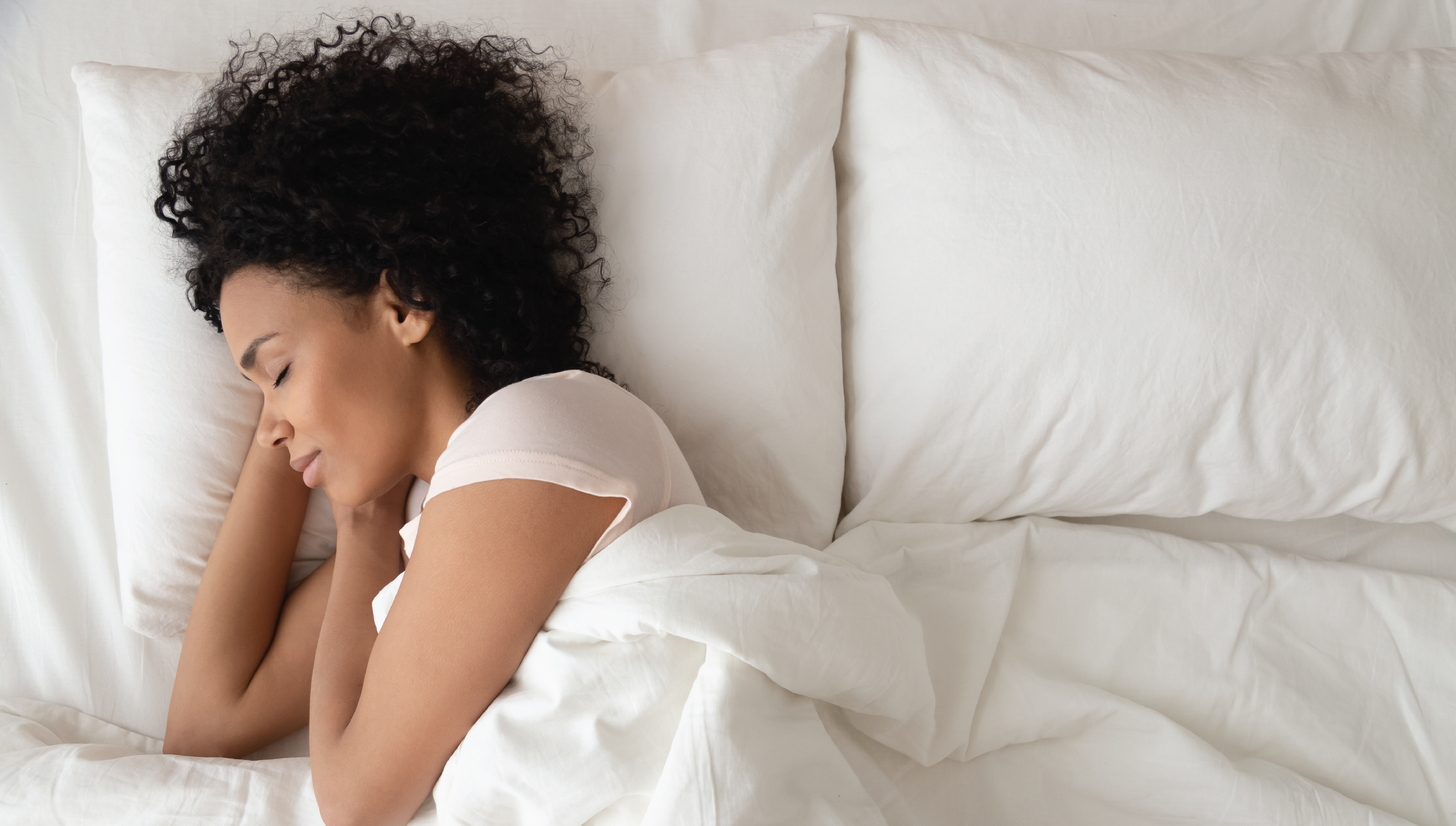If you have trouble falling asleep or staying asleep at night, you might want to try listening to white noise sounds.
White noise sounds are a type of sound that is commonly used to mask other noises and create a soothing background for your sleep.
This blog will explain what white noise is, how it works, and its benefits for better sleep. We will also give you tips on choosing and using white noise sounds effectively.
What is White Noise?
White noise is a sound that contains all frequencies across the spectrum of audible sound in equal measure. Because white noise spans multiple sound bands, it is often referred to as broadband noise. Anecdotally, people often liken white noise to the static that comes from an untuned radio or television.
However, white noise is not the only sound that can help you sleep. Other types of sounds have different frequency distributions and characteristics, such as pink noise, brown noise, blue noise, etc. These sounds are named after colors because they resemble the way light behaves when filtered through different media.
For example:
- Pink noise has more low-frequency components than high-frequency ones, which makes it sound softer and deeper than white noise sounds.
- Brown noise has even more low-frequency components than pink noise, which makes it sound like a rumble or a waterfall.
- Blue noise has more high-frequency components than low-frequency ones, which makes it sound like a hiss or a whistle.
The sound that works best for you may depend on your personal preference and sleeping environment. For example, some people may find white noise too harsh or dull, while others may find brown noise too loud or distracting. You can experiment with different sounds until you find one that suits your needs.
How Does It Work?
White noise works by creating a consistent and neutral background for your sleep. It can help you fall asleep faster by blocking out other noises that might keep you awake or disturb your sleep cycle. These noises can come from inside or outside your home, such as traffic, neighbors, pets, snoring partners, alarms, etc.
White noise can also help you stay asleep longer by preventing you from being startled by sudden changes in sound levels during the night. For example, if a car honks outside your window, white noise can reduce the contrast between the car honk and the background sound, making it less likely to wake you up.
White noise can also improve the quality of your sleep by promoting deep and restful stages of sleep. Studies have shown that white noise can increase slow-wave sleep (SWS) and rapid eye movement (REM) sleep, which is essential for memory consolidation, learning, and emotional regulation.
What Are The Benefits Of Using White Noise Sounds For Better Sleep?
Using white noise sounds for better sleep can benefit your health and well-being. Some of these benefits include:
- Reduced stress and anxiety: Listening to white noise sounds can help you relax and calm down before bed, lowering your cortisol levels and blood pressure. This can also reduce the risk of insomnia, depression, and cardiovascular diseases.
- Enhanced concentration and productivity: Listening to white noise sounds can help you focus and block out distractions during the day, improving your cognitive performance and creativity. This can also prevent fatigue, headaches, and irritability caused by noisy environments.
- Improved mood and happiness: Listening to white noise sounds can help you wake up feeling refreshed and energized in the morning, boosting your mood and motivation. This can also increase your social interactions, self-esteem, and life satisfaction.
How To Choose And Use White Noise Effectively?
To get the most out of using white noise sounds for better sleep, choose a suitable source and use it correctly.
Here are some tips on how to do so:
- Choose a source that produces consistent and continuous white noise sounds, such as a fan, an air conditioner, a humidifier, or an app.
- Avoid sources that produce intermittent or variable sounds, such as a clock, a radio, a TV, or music, as these sources may disrupt your sleep cycle instead of enhancing it.
- Choose a comfortable volume level for masking other noises but not too loud or too quiet. A volume level that is too loud may damage your hearing and prove not to be an effective way to improve your sleep quality and quantity.
White noise sounds help you block out unwanted noises, relax your mind and body, and promote deep and restful sleep stages. They can also positively affect your health, productivity, and happiness.
However, using white noise sounds for better sleep is not a magic bullet. You must also follow good sleep hygiene practices, such as keeping a regular sleep schedule, avoiding caffeine and alcohol before bed, dimming the lights in your bedroom, and avoiding screens and devices at night.
If you want to learn more about how to sleep better and enjoy the benefits of white noise sounds, visit mlilyusa.com for additional sleep tips and advice. You can also browse our selection of high-quality mattresses, pillows, and bedding accessories that can enhance your comfort and support during the night.
We’re always here to help you out! Don’t hesitate to reach out if you have questions or feedback about white noise sounds or anything sleep-related. We’d be thrilled to hear from you and help in any way we can!



